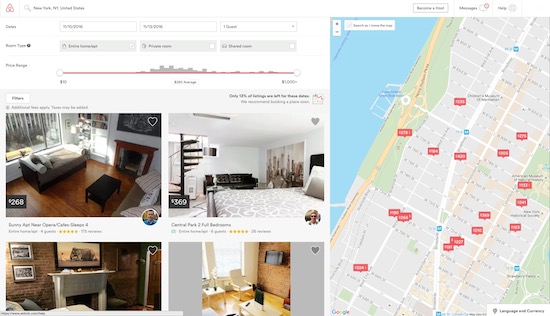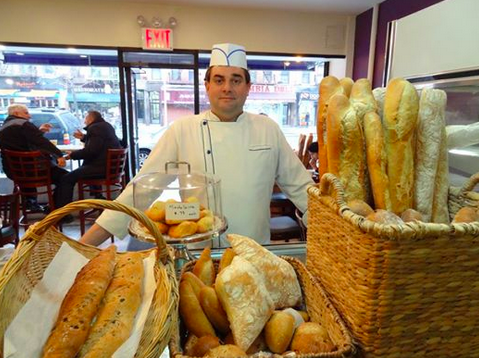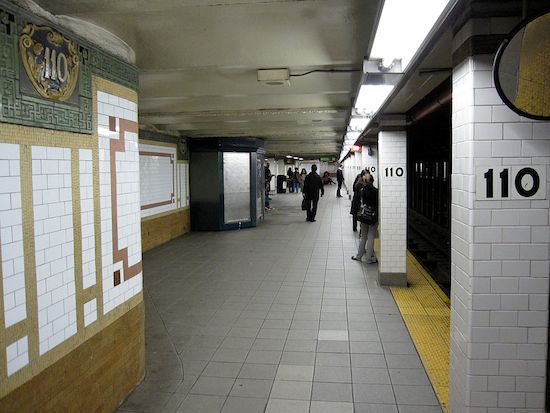
Hosts advertise hundreds of Upper West Side apartments on Airbnb. The site allows people to search by location.
By Joy Bergmann
Assemblymember Linda B. Rosenthal has doubled-down in her fight to quash illegal hotels – including Airbnb short-term rentals of entire apartments in buildings with three or more units. Her bill would prohibit advertising of such rentals and impose penalties up to $7,500 per violation. The legislation passed in the state assembly and senate. If Governor Cuomo signs the bill, it would become law effective immediately.
Rosenthal says illegal hotel usage of Class A housing units, “hasten gentrification, cause security issues, noise issues, trash issues and cause general disruption to the quality of life of permanent residents who didn’t sign a lease to live in a hotel.”
The state’s 2010 housing law already prohibits subleases of fewer than 30 days. But that hasn’t stopped over 300 hosts on the Upper West Side from listing their entire apartments on Airbnb this week. Nor has it stopped multiple UWS Class A buildings from operating openly as tourist hotels advertising on sites like Booking.com. (Airbnb hosts are allowed to rent out rooms only if they stay in the apartment while their guests are there.)
Rosenthal’s new bill tasks the Mayor’s Office of Special Enforcement [MOSE] with policing the advertisement of illegal rentals. MOSE is the same agency in charge of enforcing the current prohibitions. The 2010 law, Rosenthal says, depends on citizens filing complaints about illegal hotels. Fines for first-time offenders can range from $1,000 to $5,000, according to Curbed, but few people are charged. She believes enforcers can be more pro-active if allowed to pursue those who are advertising their rentals. “We need a robust operation carrying out this law and all laws.”
A recent study of 2015 Airbnb NYC listings found that 55 percent (28,765 units) offered entire apartment/home rentals. The study characterized over 30% of Airbnb NYC listings as Commercial, wherein hosts had multiple units available. Such commercial players are the legislation’s priority targets, says Rosenthal. Individuals occasionally renting out their apartments, “are not who is disrupting the housing market. People with multiple units can’t continue to operate with impunity.”
Airbnb has said the bill “would punish middle class families who depend on home sharing to pay the bills and stay in their homes.”
Rosenthal says that because of provisions in the Communications Decency Act passed in 1996, sites like Airbnb are protected. However, people who use such sites to engage in illegal actions may be pursued under her legislation.
WSR reached out to five Airbnb hosts with listings on the UWS seeking their perspective on the pending law. None would comment.
An Airbnb user visiting this week from Texas told WSR that the service made it possible for him to bring his family to Manhattan. “We rented out a two-bedroom, with a living room and a kitchen, for less than $200 a night. There’s no way I could get this much space in New York for twice the price. If I’m coming to New York for work, I can stay with friends or get a small hotel room, but if I come with my family, this is the only way to go,” he said.
Rosenthal says she’s been battling illegal hotels since 2007, long before the advent of Airbnb, and that tenants are achieving victories against violators. The hotel industry has backed Rosenthal; two of her top contributors in 2015 were hotel-affiliated organizations and she participates as a member of the anti-Airbnb ShareBetter coalition.
A spokesman for Governor Cuomo said the Rosenthal bill is “under review.” Rosenthal remains optimistic. “We have every confidence that he will sign it before the end of the year,” she says.








If they truly are trying to go after the “commercial” rentals then why not write the law as such (i.e., crime to advertise multiple listings or anything other than your primary residence)… so they don’t catch in their web the occasional individual renting out their own place. Anyway why is that not up to the landlord or coop board to monitor and manage? We are talking about private property. Speaking as a coop board director, I would not mind if someone did this occasionally (1-2x/year). We all have to make ends meet.
You must know that the apartments in NYC are NOT ALL COOPS.
Obviously. But coops are private corporation, that can decide for themselves how to handle their units. Condos can do whatever they do. As can rental landlords. This is not something that the state should regulate.
The state shouldn’t involve itself in matters of public safety?
How’s that working out?
Here Here!! Last thing I want in my co-op is tourists who have not been cleared by the Board running in and out of the building. It’s a safety hazard, and completely defeats the purposes of living in a co-op in the first instance.
This problem is not just limited to Coops.
cleared by the board…lol
This is nonsense.
Does any other big city have an issue with Airbnb?
Does Boston? Does Chicago?
I have to question Rosenthal’s motives when she gets big donations from the hotel industry.
Yes, other large or even small cities all over the world have had “issues” with Airbnb.
France has been trying to curb Airbnb and others like it for years, with little success. So far what has happened is Airbnb agreed to pay the French hotel tax on each of its rentals, and laws have been enacted to allow owners of French properties to rent out for a total of 120 days maximum.
https://www.thelocal.fr/20160113/paris-cracks-down-on-illegal-airbnb-flats
Germany, Italy, UK, etc… just as with the United States cities it is the same complaints from hotel owners, some residents and those seeking to rent or purchase housing.
Meanwhile Airbnb just secured another 850 million in financing and is valuated at 30 billion.
“Meanwhile Airbnb just secured another 850 million in financing and is valuated at 30 billion.”
Another RACKET infringing on the many to enrich the few.
Maybe, but IMHO AirBnB has a better business model than Facebook, but yet look how wealthy that mess has made Mark Zuckerberg.
So far no one has made huge money off AirBnb, nor will they likely unless the thing does a public offering.
@B.B. I am not interested in the riches being reaped. My point is about the soiled mess they leave behind.
Yes – other big cites in the US and abroad have serious issues as well – for example:
https://tinyurl.com/zckc3b7
https://tinyurl.com/zl3jpxt
Sorry – it’s not OK for you to move un-vetted strangers into my home so you can make extra money. Its not a hotel.
I wish I were more confident that this bill will solve the issue. There’s currently little to no enforcement of the law and Airbnb and others don’t care that their website is promoting illegal hotels.
Until there is more enforcement or the websites feel monetary consequences, more homes will be used as hotels.
Agree:
“The state’s 2010 housing law already prohibits subleases of fewer than 30 days. But that hasn’t stopped over 300 hosts on the Upper West Side from listing their entire apartments on Airbnb this week.”
In theory renting out your apartment when you’re not home should be OK, but there are no controls in place or real screening methods over who is getting access to your building, your hallway, your common areas, etc. Strangers get the keys to your building and you just have to hope they’re OK.
Yay! Now there will be more weight behind the two of us on my floor who are reporting our rent-stabilized neighbor who frequently rents out his entire apartment while he is at his summer house upstate.
What is not being discussed, as far as I’ve seen, are the dangers to co-ops in terms of a building’s insurance policies. If a short term renter has an accident (slips on a wet lobby floor, an icy stoop) and sues the building, the insurance investigators can discover that the building allowed renting to paid guests (against current NYC and NY State laws) and can therefore deny the claim. The building would then become un-insurable and all shareholders would be financially penalized in an extreme way.
This is not just a coop issues. “If a short term renter *causes* an accident (slip on a wet lobby floor, an icy stoop,all tenants are at risk.
Someone on this thread asked if other big cities are seeing a negative impact of Airbnb rentals and the answer is yes. New Orleans is in the middle of holding community board meetings (or whatever they call their neighborhood legislative bodies)to address the fact that renters are being displaced because landlords have decided they can make more revenue renting to Airbnb clients. With a town as almost singularly focused on tourism as it is, so many hospitality industry employees are finding it hard to identify affordable housing and the bigger bite that new rents are taking out of their paycheck means that they have less to spend too. Additionally, hotel revenue is down which means taxable income is down too. So, as you can see, NYC isn’t the only one with a problem and Linda Rosenthal isn’t the only legislator taking steps to make Airbnb a better business partner to their city. As it should be.
And, on a related note, I agree with the person who said that the liability issue isn’t being discussed and should be.
Liability issue for condos or co-ops isn’t discussed because it largely does not exist.
In order to hold the condo or co-op liable for bodily injury or whatever to an Airbnb or other sort of guest it would have to be proven (IIRC) the board *knew* or otherwise condoned the activity. Far as one knows most if not all co-ops in NYC do not allow Airbnb type activity, and take immediate legal steps towards any shareholder suspected or found to be in violation.
Our building has cameras in lobby and the doormen have been given their orders. Notices were sent out gently reminding residents of the policy against Airbnb. One person did it anyway and got into a world of legal trouble.
People living in co-ops and condos know or should know very well their homeowner’s policies will likely be voided if they engage in Airbnb type activity.
Allowing non-paying guests to stay in a co-op or condo unit is another matter.
“Allowing non-paying guests to stay in a co-op or condo unit is another matter.” – B.B.
…used to be called ‘Hospitality’.
That and on the other hand some co-ops and condos do allow owners to do long term rentals (more than one month), though think condos are the more lenient of the two.
Airbnb and other such services are merely a modern take on “room for rent” postings you’d find in newspapers, bulletin boards etc… for years.
People have been renting out their flats or part of their homes to tourists or whomever for ages. At least with Aribnb there is some sort of paper trail and both host and client to an extent are vetted.
If you shut down Airbnb and similar businesses persons will simply navigate to other methods, all done quite easily with modern technology.
Are you suggesting that our Officials not enforce the Law?
What exactly IS your relation to the RE Industry?
Furthermore NYC already has laws against short term rentals and other violations AirBnB is accused of; yet even Mrs. Rosenthal admits above the City is not very active with enforcement including fines and other punishments.
So if NYC isn’t enforcing laws/rules already on the books what is the good of piling on more? Cuomo has had a bill on his desk for about a month or more that would impose new restrictions on Airbnb type rentals, but IIRC he has yet to sign.
Cuomo hasn’t received the bill from the legislature for him to sign. Once he has the bill he only has a few days to sign or reject the bill or it becomes law automatically.
No idea why the legislature hasn’t forwarded on… Knowing Cuomo, he’s probably trying to get some ‘campaign donations’ out of one side before signing or not signing.
If I send a ‘fiver’ he’ll sign?
A ‘tenner’?
What’ll it take?
What’s the ‘number’?
Here’s why.
From the Article:
“Fines for first-time offenders can range from $1,000 to $5,000, according to Curbed, but few people are charged. She believes enforcers can be more pro-active if allowed to pursue those who are advertising their rentals. ‘We need a robust operation carrying out this law and all laws.'”
Have no relation to the “RE industry”. Just am able to look outside of my own little world.
No one said the laws shouldn’t be enforced, but there are all sorts of laws against a wide and vast number of things that still continue regardless.
Can understand persons having issues with short term rentals in multi-family housing; but those who own townhouses and other private homes are another matter.
Per a June 2015 Daily News article:
“Airbnb is gobbling up a huge chunk of apartments in some of the city’s hottest zip codes — snagging as much as 20% of vacancies in parts of Manhattan and Brooklyn, according to a new study by two affordable housing advocates. The East Village led the list with a whopping 28% of its units going as illegal hotel rooms on the popular home-sharing site, according to an analysis from New York Communities for Change and Real Affordability For All. The 20 most popular Airbnb neighborhoods — in Manhattan, Brooklyn and Long Island City, Queens — have lost 10% of their available housing units to Airbnb, according to the study.”
Airbnb takes apartments off the market and results in increased costs for people trying to rent apartments. There are also some landlords who harass tenants either to get them out, or to ensure silence about the illegal Airbnb activity. (Several of my colleagues live in such buildings)
Airbnb impacts on building security and daily living (noise, trash etc).
Airbnb’s negative impact is not confined to apartments in big cities – homeowners in Austin, Texas, Santa Monica, CA and many other places are also experiencing problems with the explosion of Airbnb house rental, especially for party purposes.
Should also add that growth of “tourism” in a residential neighborhood inevitably destroys the residential community/character.
The East Village is one such example. Residential buildings are now being targeted for transformation into hotels.
Most recently, the website EV Grieve reports plans to demolish 5 buildings, to be replaced by a hotel.
“Plans to bring a 300-room hotel to East 11th Street between Third Avenue and Fourth Avenue are progressing. On Thursday, the Lighthouse Group filed permits with the city to demolish five buildings — 112 to 120 E. 11th St. — that will yield to the new property.”
“WSR reached out to five Airbnb hosts with listings on the UWS seeking their perspective on the pending law. None would comment.”
Can you please publish their names as a Public Service.
With the changes coming in Cuba, Rosenthal’s law will leave NYC and Zimbabwe with the last centrally controlled economies in the world.
“Rosenthal’s law will leave NYC and Zimbabwe with the last centrally controlled economies in the world.” Jazz
Powerful Woman!
I don’t want Air BnB in my building because I am anxious about strangers having unfettered access to the building where my family and I live.
At the same time, I think that people should be allowed to rent out their own property. I believe there is a risk to the tax status of co-ops if they allow too many rentals by unit owners, though I don’t live in a co-op and don’t know for sure. But condo owners should be allowed to if their neighbors in the building agree. And co-ops can look after their own tax status.
Clearly, hotel owners won’t like it, and they have been active in protesting. But competition in an industry is not a reason to prohibit it. That is how prices go down for everyone.
I’m not convinced that allowing condo owners to do this removes apartments from the market, nor that it is a net detriment to the city. Tourists generally bring money to the city. And these seem to be homes that people hold and would hold idle if not renting them out.
I recognize that the situation is more complex with rentals, whether market rate or rent controlled/stabilized.
Still, some of the vitriol her is reminiscent of the republican convention. Why the fury?
“At the same time, I think that people should be allowed to rent out their own property…though I don’t live in a co-op and don’t know for sure.” EricaC
They are Co-Ops, Cooperative apartments.
People who Cooperate don’t do exactly those things that you don’t want done to you: “I don’t want Air BnB in my building because I am anxious about strangers having unfettered access to the building where my family and I live.”
Dannyboy – yes, but it is up to each co-op to decide. Once they decide, they should be allowed to enforce. My point was that this should be decided by co-ops not by law – though (and this is what the text you selectively quoted related to) I believe co-ops face a tax issue if too many apartments are sublet.